Apr
15
2009
Ordinary People
In Judges and 1 Samuel, the weapons used to defeat the enemy reflect the ordinary people who used them: a tent peg, an ox goad, a millstone, an ass’s jawbone, a slingshot. It was Saul who started throwing spears like a Gentile, like Goliath.
Our weapons are not of this world, but many of them are still physical weapons: bread, wine, water, oil, bended knees, soundwaves, books, gifts, open ears, hospitality, open or closed church doors. These physical things capture people’s thoughts and make them obey Christ.
We live in this world, but we don’t act like its people or fight our battles with the weapons of this world. Instead, we use God’s power that can destroy fortresses. We destroy arguments and every bit of pride that keeps anyone from knowing God. We capture people’s thoughts and make them obey Christ. And when you completely obey him, we will punish anyone who refuses to obey.” 2 Cor 10:3-6 [CEV]
WEPOW
Comments Off | tags: goliath, Holy war, Judges, Saul | posted in Biblical Theology, Christian Life
Apr
15
2009
Present Your Bodies as Spiritual Worship
Over the years we have emphasized the importance of ritual. Rituals are significant in the Bible, and they ought to be significant to us. We have also emphasized the importance of worshipping God with our bodies and not just with our minds. We have sought to resist the temptation that many Reformed Christians deal with, which is the idea that God gave us bodies as carrying cases to get our brains to church.
Continue reading
Comments Off | tags: Doug Wilson, Ecclesiology, Gnosticism, Liturgy, Ritual | posted in Biblical Theology
Apr
15
2009
Witness or Worship?
“…the political task of Christians is to be the church rather than to transform the world”–Stanley Hauerwas, Resident Aliens.
This presents a false dichotomy. When Gideon and David were faithful, God went ahead of them and defeated their enemies. Would it be fair to assume that Hauerwas is just saying that political activism is getting the cart before the horse? If so, then I agree with him. When the church is faithful, the blessings of God transform the world around her.
Continue reading
Comments Off | tags: Aaron, Ark of the Covenant, David, Ezekiel, Gideon, Holy Place, James Jordan, Manna, Politics, Table of Showbread | posted in Biblical Theology, Ethics
Apr
15
2009

Power Tools
“Then the Lord awoke as from sleep, like a mighty man who shouts because of wine. And He beat back His enemies; He put them to a perpetual reproach.” Psalm 78:65-66
“I’m a 30 year old boy.” Edward Norton, Fight Club.
Guns are dangerous. They are so offensive in fact, that they should be prohibited altogether. And male leadership has been abused so much, and women exploited for so long, that such headship should also be shamed and even prohibited. And alcohol. Alcohol leads to so much misery that it also should be prohibited. Oh, wait. That’s us.
Continue reading
Comments Off | tags: Alcohol, Film, Masculinity | posted in Biblical Theology, Christian Life, Ethics
Apr
15
2009
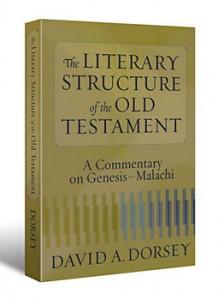 “I began writing this book some ten years ago, although my interest in Hebrew literary structure goes back a decade before that. My fascination with the subject was kindled when I began teaching Old Testament courses in seminary. At that time I was struck by the apparent lack of order within many of the biblical books. Jeremiah seemed hopelessly confused in its organisation; so did Isaiah and Hosea and most of the prophets. Song of Songs and Ecclesiastes appeared to be in almost complete disarray, and even the more orderly historical books, such as Joshua and Kings, showed signs of strangely careless organisation. Why did the biblical authors write like this? I would never write a book, an article, or even a private letter with such carelessness of arrangement.
“I began writing this book some ten years ago, although my interest in Hebrew literary structure goes back a decade before that. My fascination with the subject was kindled when I began teaching Old Testament courses in seminary. At that time I was struck by the apparent lack of order within many of the biblical books. Jeremiah seemed hopelessly confused in its organisation; so did Isaiah and Hosea and most of the prophets. Song of Songs and Ecclesiastes appeared to be in almost complete disarray, and even the more orderly historical books, such as Joshua and Kings, showed signs of strangely careless organisation. Why did the biblical authors write like this? I would never write a book, an article, or even a private letter with such carelessness of arrangement.
I was intrigued by the possibility that the Hebrew authors might have organised their compositions according to literary conventions that were different from ours. I began to discover, over a period of years, that several structuring patterns rarely used by us were remarkably common in the books of the Hebrew Bible, particularly chiasmus (symmetry), parallelism, and sevenfold patterns. I was increasingly struck by how often these patterns had been utilised to arrange biblical books…
It was my mother who gave me a love for literature. She read to my brother Stephen and me regularly, from as early as I can remember. I still have many fond memories of those wondrous bedtime stories, whose structures — like the Bible — were designed for the ear, not the eye.”
David A. Dorsey, The Literary Structure of the Old Testament, p.9-10 (Preface).
Comments Off | tags: Chiasm, David A. Dorsey, Ecclesiastes, Hebrew, Isaiah, Jeremiah, Literary Structure, Old Testament, Song of Songs | posted in Quotes
Apr
15
2009
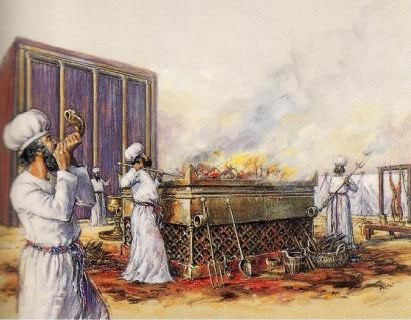
See to it that you do not refuse him who speaks. If they did not escape when they refused him who warned them on earth, how much less will we, if we turn away from him who warns us from heaven? At that time his voice shook the Land, but now he has promised, “Once more I will shake not only the Land but also the heavens.” The words “once more” indicate the removing of what can be shaken—that is, created things—so that what cannot be shaken may remain. Therefore, since we are receiving a kingdom that cannot be shaken, let us be thankful, and so worship God acceptably with reverence and awe, for our “God is a consuming fire.” Hebrews 12:25-29
The context of Hebrews is AD70. The destruction of Jerusalem meant that the saints had received the kingdom (Daniel 7).
Continue reading
Comments Off | tags: AD70, Altar, Atonement, Azal, Hebrews, Jericho, Passover, Tabernacle | posted in Biblical Theology, The Last Days
Apr
15
2009
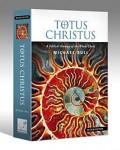
The one who conquers and who keeps my works until the end, to him I will give authority over the nations, and he will rule them with a rod of iron, as when earthen pots are broken in pieces, even as I myself have received authority from my Father.
Christ refers here to Psalm 2. It had been fulfilled in the “head” at His ascension. At this point, it was yet to be fulfilled in the “body.”
Continue reading
Comments Off | tags: Acts, Angels, Ascension, Peter Leithart, Psalm 2, Sodom, Totus Christus, Two witnesses | posted in Biblical Theology, Totus Christus
Apr
15
2009
 Rediscovering our identity is the solution for this lack of confidence. Israel’s history is most assuredly our history, as much as a narrow trunk suddenly fills the sky with branches. This theme of trunk and branches, Adam and Eve, head and body, Old Testament and New, Christ and the church—the Whole Christ—is the deep structure that undergirds the entire Bible, and the New Testament is but the final, majestic sweep. To regain her identity, the church must develop not only an intimate knowledge of the Old Testament, but one that is totally integrated with the New.
Rediscovering our identity is the solution for this lack of confidence. Israel’s history is most assuredly our history, as much as a narrow trunk suddenly fills the sky with branches. This theme of trunk and branches, Adam and Eve, head and body, Old Testament and New, Christ and the church—the Whole Christ—is the deep structure that undergirds the entire Bible, and the New Testament is but the final, majestic sweep. To regain her identity, the church must develop not only an intimate knowledge of the Old Testament, but one that is totally integrated with the New.
Read the Introduction and Chapter 1 here.
Comments Off | tags: Bible history | posted in Biblical Theology, Christian Life, Totus Christus
Apr
15
2009
“How is the land, is it fat or lean? Are there trees in it or not? Make an effort then to get some of the fruit of the land.” Now the time was the time of the first ripe grapes… Then they came to the valley of Eshcol and from there cut down a branch with a single cluster of grapes; and they carried it on a pole between two men. (from Numbers 13)
But Christ has indeed been raised from the dead, the firstfruits of those who have fallen asleep. (1 Corinthians 15:20)
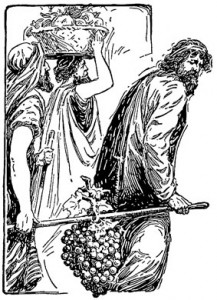 The Tabernacle is an architectural model of the world. Each of the seven speeches of the Lord (Exodus 25-31) is introduced with a variant of the phrase “Then Yahweh spoke to Moses, saying.” The seven speeches follow the pattern of the seven days of the Creation week, and also the seven feasts in Leviticus 23.
The Tabernacle is an architectural model of the world. Each of the seven speeches of the Lord (Exodus 25-31) is introduced with a variant of the phrase “Then Yahweh spoke to Moses, saying.” The seven speeches follow the pattern of the seven days of the Creation week, and also the seven feasts in Leviticus 23.
The Table of Showbread corresponds to both the grain and fruit created on Day 3, the Feast of Firstfruits and to the Asension of Moses.
This pattern began in the garden, when after Adam’s “Red Sea” death and resurrection, he was united to his bride by Covenant. He “ascended” as covenant head of a new family, with God’s one Law.
On the table in the Holy Place were twelve loaves of bread and jugs of beer (from grain), and later, wine. Like the manna and the grapes of Eshcol, these were a promise of rest and rule with God on a future Sabbath as priest and king. Here is the last supper. As with Adam and Moses, this initial promise of wine was followed by exposure to the serpent for testing under the Law – Pentecost.
Just as the marriage covenant of Adam and Eve at Firstfruits is really a betrothal of their united marriage to God on Day 7, so this Table of Israel was a promise of future glory to the whole world at the final Sabbath feast, Tabernacles.
To use Doug Wilson’s phrase, human marriage is “manifest glory.” It is a Day 3 picture of the Day 7 rest to come at the union of heaven and earth.
Comments Off | tags: Adam, Betrothal, Booths, Doug Wilson, Firstfruits, Holy Place, Last Supper, Manna, Marriage, Numbers, Pentecost, Tabernacle, Tabernacles, Wine | posted in Biblical Theology
Apr
15
2009
“We shall be gods”
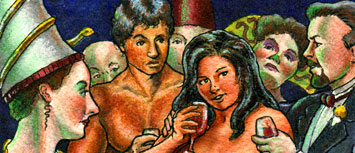 “Therefore, if you died with Christ from the basic principles of the world, why, as though living in the world, do you subject yourselves to regulations — “Do not touch, do not taste, do not handle,” which all concern things which perish with the using — according to the commandments and doctrines of men? These things indeed have an appearance of wisdom in self-imposed religion, false humility, and neglect of the body, but are of no value against the indulgence of the flesh.” Colossians 2:20-23
“Therefore, if you died with Christ from the basic principles of the world, why, as though living in the world, do you subject yourselves to regulations — “Do not touch, do not taste, do not handle,” which all concern things which perish with the using — according to the commandments and doctrines of men? These things indeed have an appearance of wisdom in self-imposed religion, false humility, and neglect of the body, but are of no value against the indulgence of the flesh.” Colossians 2:20-23
As with nearly everthing in the Bible, the roots of this go back to early Genesis.
Continue reading
1 comment | tags: Adam, Bible history, Daniel, Esther, Food laws, Genesis | posted in Biblical Theology































